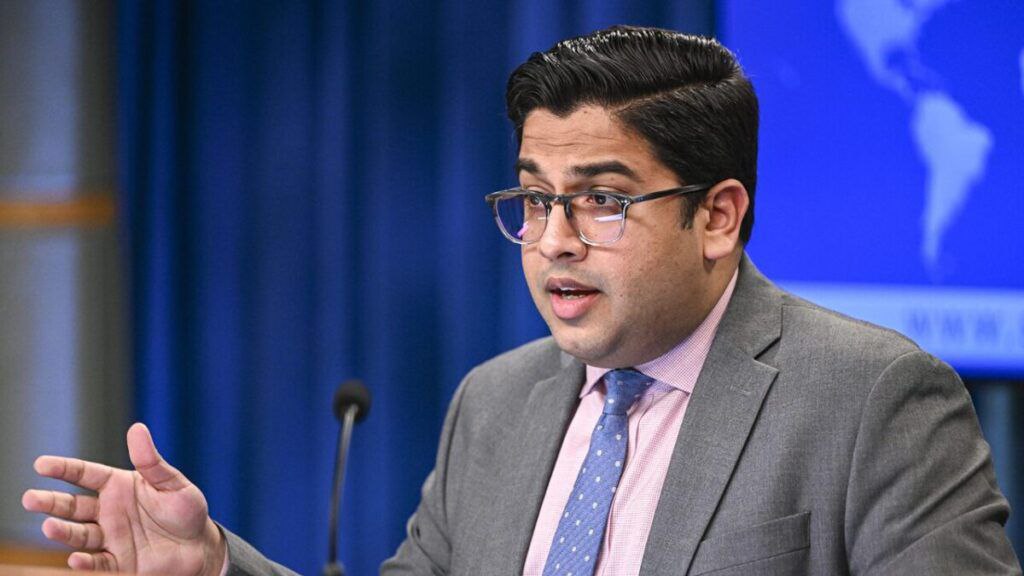WASHINGTON — Following the conclusion of the third round of Doha talks, where Afghanistan’s banking system, private sector, and drug policy were discussed with Taliban representatives, the United States attributed banking restrictions on Afghanistan to the Taliban’s “atrocious” human rights record.
Vedant Patel, Deputy Spokesperson for the U.S. State Department, emphasized that while the Taliban complain about sanctions, the Afghan people are not the targets of these measures.
“I don’t have a specific readout from the conference at the moment, but what I can say is that Tom [West] made clear that the primary reason private banks have reservations about doing more business in Afghanistan is reputational, and that it is rooted in the Taliban’s atrocious human rights conduct. We know that the Taliban often complains about sanctions, but given the broad general license issued by the Treasury Department, relief organizations as well as businesses have the leeway they need to support the Afghan people,” Patel said.
In addition, Russia has previously indicated plans to remove the Taliban from its list of terrorist organizations. However, Russia’s permanent representative to the United Nations, Vasily Nebenzya, stated at a press briefing that there is no “specific progress” to report on this matter.
These comments come as the Taliban participated in the third round of Doha talks over the past two days, negotiating the lifting of banking and private sector sanctions, and discussing efforts to strengthen anti-narcotics policies.
The Taliban viewed Russia’s potential move as an opportunity to circumvent sanctions. Despite welcoming the Taliban’s participation in Doha, Nebenzya stressed that Moscow expects the establishment of an inclusive government in Afghanistan that respects women’s and girls’ rights.
“Yes, we are in contact with them [the Taliban], but unfortunately, they have their own views. I am not endorsing this, but it is a fact that we are dealing with the Taliban. The policies imposed on women and girls by the Taliban, which they justify with Islamic principles, are not actually Islamic. Many Islamic countries have tried to explain this, but the Taliban do not listen. This is the issue, this is the problem,” Nebenzya said.
Meanwhile, some Afghan citizens are urging the international community to prioritize human rights, especially women’s and girls’ rights, in any dealings with the Taliban.
A Kabul resident, who wished to remain anonymous, said, “We ask the world not to compromise with the Taliban until they reopen schools and universities for girls and provide employment opportunities for women. How long will we remain without a future?”
Despite ongoing global criticism, the Taliban have consistently condemned international sanctions, arguing that such measures are ineffective and blaming the country’s economic conditions on these sanctions.
However, human rights activists and protesting women maintain that the Taliban’s human rights abuses have subjected Afghanistan to global sanctions, leading to severe economic and political challenges for its people.





